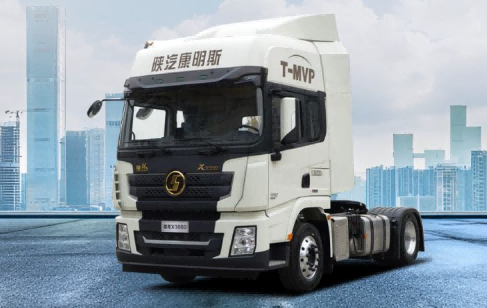Shacman has emerged as a key player, leveraging its durable trucks and tailored solutions to meet the continent’s unique demands. With a strong presence in countries such as Nigeria, Kenya, South Africa, and Algeria, Shacman’s heavy-duty trucks are transforming transportation networks, driving economic growth, and solidifying China’s footprint in Africa’s automotive industry.
In recent years, Shacman, a subsidiary of the Shaanxi Automobile Group, has witnessed exponential growth in Africa, driven by its reputation for reliability, fuel efficiency, and affordability. The company’s trucks, ranging from heavy-duty haulers to construction vehicles, have become staples in sectors like mining, agriculture, and urban logistics. According to industry reports, Shacman’s market share in sub-Saharan Africa has surged by 25% over the past three years, outpacing many European and Japanese competitors.
Localized Adaptation and Partnerships
A critical factor behind Shacman’s success is its focus on localization. The company collaborates with African partners to customize vehicles for challenging terrains, including desert roads, mountainous regions, and unpaved routes. For instance, in Nigeria, Shacman trucks are equipped with reinforced suspensions and high-torque engines to navigate the country’s notoriously rough highways. In South Africa, the brand offers specialized models for mining operations, ensuring compliance with stringent safety and emission standards.
Shacman has also invested in building robust after-sales networks across Africa. Through partnerships with local distributors and service centers, the company provides timely maintenance, genuine spare parts, and driver training programs. This approach has not only improved customer satisfaction but also positioned Shacman as a long-term partner rather than a mere exporter.
Economic Impact and Sustainability
Shacman’s presence is boosting African economies by enabling efficient goods transportation. In Kenya, the brand’s trucks are vital for moving agricultural produce from rural areas to urban markets, reducing post-harvest losses and supporting farmers. Similarly, in Algeria, Shacman’s heavy-duty trucks are integral to infrastructure projects, including highway construction and energy sector developments.
Moreover, Shacman is increasingly aligning with Africa’s sustainability goals. The company has introduced Euro V and Euro VI compliant engines in select markets, reducing carbon emissions while maintaining performance. In Ethiopia, Shacman recently launched a pilot program using liquefied natural gas (LNG) trucks, demonstrating its commitment to cleaner energy solutions.
Challenges and Future Prospects
Despite its achievements, Shacman faces competition from established global brands like Mercedes-Benz and Volvo, which dominate premium segments. However, the Chinese manufacturer differentiates itself through cost-effective pricing and rapid adaptability. For example, during the COVID-19 pandemic, Shacman quickly adjusted production to meet demand for refrigerated trucks, aiding African countries in vaccine distribution.
Looking ahead, Shacman plans to expand its electric vehicle (EV) lineup in Africa, tapping into rising demand for greener transport. The company is also exploring joint ventures with African manufacturers to assemble trucks locally, further reducing costs and supporting industrialization on the continent.
Shacman’s success story in Africa underscores the growing influence of Chinese automotive brands on the global stage. By prioritizing localization, innovation, and sustainability, Shacman is not only driving Africa’s development but also reshaping the narrative of Sino-African trade. As the continent’s infrastructure evolves, Shacman’s trucks are poised to remain a cornerstone of progress, connecting communities and powering prosperity across the continent.
If you are interested, you can directly contact us. WhatsApp:+8617829390655 WeChat:+8617782538960 Telephone number:+8617782538960
Post time: Mar-26-2025









